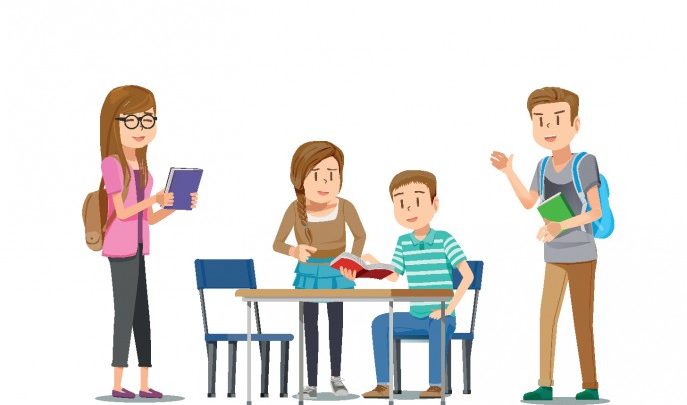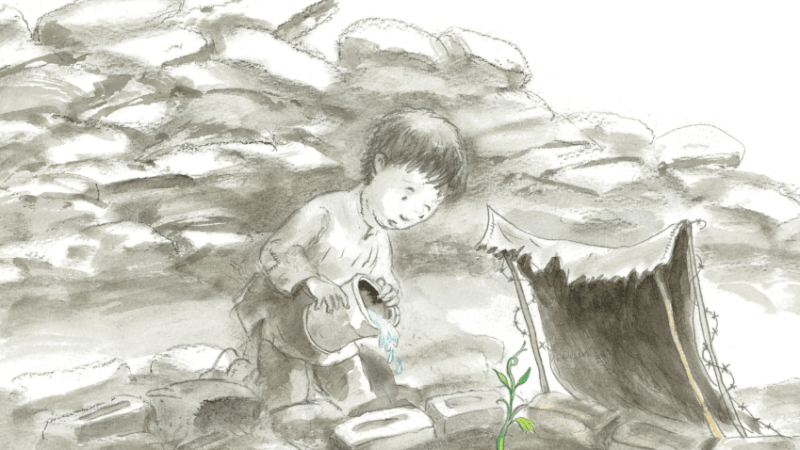Stories Aren’t The Only Reason To Pick Up A Book

Non-Fiction can play an important role in developing confident, capable and enthusiastic readers
- by Chiaka Amadi

It has long been documented that reading for pleasure impacts on children’s literacy ability, and as a consequence, their performance at school.
For example, National Literacy Trust research shows that young people who enjoy reading very much are nearly four times as likely to read above the expected level for their age, compared with young people who do not enjoy reading at all.
During National Non-Fiction November 2016, we consider the importance of non-fiction texts in engaging pupils to read for pleasure.
Could it be that exposure to mixed and varied reading material, both fiction and non-fiction, self-selected by the reader, is boosting children’s acquisition of vocabulary and structures, developing their knowledge and understanding and enhancing their appreciation of style, expression and communication? It would appear so. And because the majority of children learn to read at school, this has immediate implications for teachers.
Differing opinions about the effectiveness of a particular pedagogy or practice will probably continue to be voiced in our schools, but one thing that is largely agreed on is that the process of learning to read is made easier when it is enjoyable.
So we might argue, that in making the teaching of literacy more enjoyable, all children will progress fairly smoothly in developing their literacy skills, be happy and confident readers, picking up books and gaining enjoyment from them. If only it were that simple.
Reality show
In more recent times, the teaching of reading skills has extended its scope beyond a more traditional reliance on ‘storytelling’ narrative texts and begun to include non-fiction.
Some of the reasons for this lie within the study of children who are perceived to be at a disadvantage in the development of literacy skills; possibly because socially or culturally they may not have been exposed to certain topics or themes that feature in the school curriculum.
This is particularly true for children who are learning English as an additional language, who may rely on the conversational language they bring to the reading process and lack the more ‘academic’ language needed to tackle the specialised or technical texts common in our classrooms.
In using non-fiction or ‘informational texts’ (autobiographies, recipes, science-based topics such as ‘my body’ or ‘the life cycle of the butterfly’, humanities-based topics such as ‘the industrial revolution’ or ‘sailing and boating’) for teaching reading skills, teachers are actively exposing children to a wider range of genres, and thereby registers of English.
This serves a twofold process. As well as developing the literacy skills of children who might be at risk in terms of their literacy development, if we jump for a moment to the world of adults, we learn from researchers at the University of North Carolina that some 86% of reading material is drawn from “factual text to gather information.”
If this is the reading material that adults are overwhelmingly selecting, then the move to teaching non-fiction texts in schools might be a key factor in ultimately being able to promote and extend reading for pleasure.
Something to talk about
So what benefits are provided by non-fiction texts? Alicia Lalicon, a Filipino-American psychology graduate makes some interesting comments in her blog.
She says that “while fiction allows us to experience more worlds (and words!) than we could ever experience otherwise”, non-fiction has provided her with the same opportunities as well as exposing her to a “wide (but not all-encompassing) range of topics applicable to ‘real’ life”. She relishes the fact that the body of her non-fiction reading has equipped her with “practical, daily life-applicable knowledge that I can use to interact with others”.
Reading non-fiction helps her to be proud to “contribute something to a conversation when someone brings up a topic you’ve read about”, whereas “fiction works less so since not everyone reads the same books, nor interprets them in the same way as others might.”
In other words, non-fiction enriches her, but does not require the same analysis and interpretation of meaning as fiction.
In non-fiction the writer’s intention is clear and unambiguous. The literal, more certain content of non-fiction can allow the reader to apply the learning they have absorbed to real life situations more readily than some of the meanings they might have taken from the more ephemeral canvases sometimes painted in fiction texts.
The pleasure principle
Returning to the teaching of non-fiction texts to ‘disadvantaged’ learners, Emeritus Professor Stephen Krashen has extensively written on language and literacy acquisition for learners of English as an additional language.
He challenges the notion that reading for pleasure is something we do simply because it feels good. He says that “If an activity is good for language and literacy development, then the activity is pleasurable.” He seems to be implying that the process of learning to read helps us develop our literacy skills which is in itself, pleasurable.
This in turn motivates the individual to read more, acquire stronger literacy skills and derive more pleasure. It seems that the teaching and subsequent reading of non-fiction texts can catch us up in a virtuous circle. I hope so. Access to academic language in a wide range of subjects has been a key feature of work the National Literacy Trust has done in Oxfordshire where their Y7 and Y8 students’ schools have been building the foundations for the greater literacy requirements of the new GCSE specifications.
To find out more about professional development opportunities available which include a focus on reading non-fiction texts, click here.
Chiaka Amadi is a literacy teacher, trainer and consultant with a background in school improvement and particular expertise improving the literacy of pupils who have English as an additional language. She is working with the National Literacy Trust on professional development opportunities for secondary school literacy leaders.











